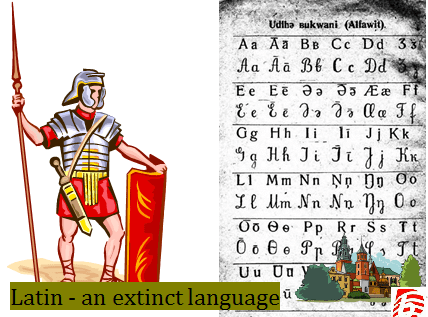Difference Between Greek and Latin Language
Greek vs Latin Language
If you are an enthusiast of languages, you might already know what Greek and Latin languages are, where they stand in the rankings of languages of the world, and why they are as much significant as they are today, but you might want to know the difference between Greek and Latin language. If you are seeking answers, this article may help you understand about the two languages and the differences between them. The prime similarity between the two languages is that they both stem from the Indo-European family of languages.
What is Greek Language?
Greek is the language principally spoken in Greece. It is also the native language to the southern Balkans, the Aegean Islands, western Asia Minor and Cyprus. Greek, which is also the official language of Greece and Cyprus, is known as the language with the longest history. The writing system of Greek, the Greek alphabet, stemmed from the Phoenician scripts. Greek language encompasses a very strong Greek literature of which the history runs back approximately to 4th century BC. Greek language was also the lingua franca (any language used for communication among speakers of other languages) during the times of the classical period. With regard to the history of the Greek language, six sub-periods can be identified: Proto-Greek, Mycenaean Greek, Ancient Greek, Koine Greek, Medieval Greek and Modern Greek. In terms of the linguistic nature of Greek, it is acknowledged as a language with diglossia: the state of having different varieties for written and spoken. With its phonology, morphology, syntax and vocabulary, Greek is commonly acknowledged as an opulent language.

What is Latin Language?
Latin, also stemmed from the Indo-European language family, is an ancient language spoken during the Roman Empire. Although writings in Latin still exist, it is referred to as an extinct language without a community of native speakers. As other languages in the world gradually evolve, Latin does not change owing to the fact that it is not spoken by people except for some groups of the Roman Catholic Church. Latin too was a lingua franca during the medieval period in Europe and it was categorized into two sub-branches: classical Latin and Vulgar Latin. It is from the Vulgar Latin that modern languages like French, Italian, Spanish, etc. evolved from. Latin language uses a writing script known as the Latin alphabet. Like Greek, Latin too was a language that should be taught and learnt at the time it was a powerful tool.

What is the difference between Greek and Latin?
• Greek is the native and official language of Greece, Cyprus and some other countries while Latin was the language of the Romans.
• Greek is a living language while Latin is often referred to as an extinct language.
• Greek was the lingua franca during the classical period whereas Latin was the lingua franca during the Middle Ages.
• Both Greek and Latin languages stemmed from the Indo-European family of languages, but Latin later gave birth to a language family called the Romance languages: French, Italian, Spanish, Portuguese, etc.
• Ancient Greek and Latin consisted of a verb-final sentence structure while Modern Greek has changed into a VSO or SVO structure.
• Latin and Greek languages have different alphabets.
• A large number of scientific, technical, and medical words stemmed from Greek roots while Latin lent words to many other languages.
Although Greek and Latin share many grammatical features such as gender, cases, noun inflections, there are certain subtle differences between Greek and Latin that can be noted in their origins, history and other notions.
Further Reading:
ncG1vNJzZmivp6x7pbXFn5yrnZ6YsqOx07CcnqZemLyue8OinZ%2Bdopq7pLGMm5ytr5Wau26z0Z6cpGWRo7FuwtJmo5qsmaN6ra3NoKyan5Vk